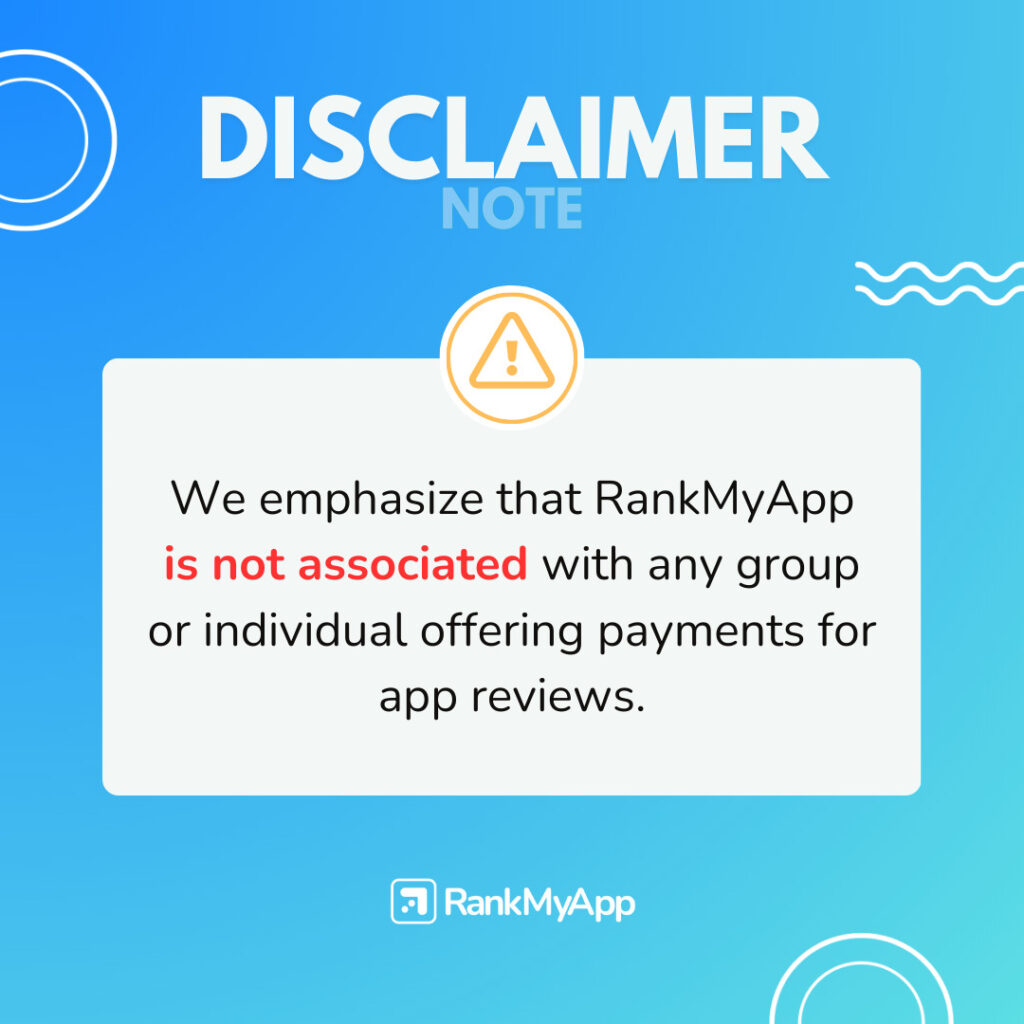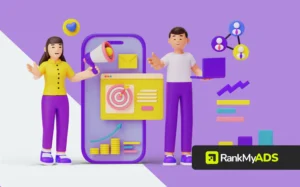To enhance the visibility of your app in the stores, frequent optimization is essential, as it directly contributes to improving your app’s relevance in the app stores.
However, it’s important to keep in mind that, in today’s competitive app landscape, optimizing apps can be a topic that raises a lot of questions for users, especially since the algorithms of the Google Play Store and the Apple App Store work differently.
That’s why RankMyApp has created exclusive content on how the optimization process works for each of the major app stores, as well as the key factors that need extra attention during the optimization process.
Understanding the app optimization process
First and foremost, it’s essential to understand what app optimization entails and how it can vary depending on your goals.
In simple terms, app optimization means updating key elements that influence your app’s visibility—ranging from choosing new keywords to updating screenshots.
In general, it means refreshing your app using strategies that help it stay visible to the algorithms of each store.
In this sense, app optimization or App Store Optimization (ASO) can be defined as a set of marketing strategies to improve your app’s visibility on stores like Google Play and the Apple App Store.
By applying ASO practices correctly, your app can experience increased visibility among users, which translates to more downloads.
To illustrate, think of it like products displayed on the best shelves in a store—they’re more visible and, therefore, more likely to be purchased.
It’s worth mentioning that ASO techniques can be applied to various app categories—games, shopping, sales, and more.
What does ASO marketing consist of?
Many ASO marketing techniques resemble aspects of SEO (Search Engine Optimization). This means they take into account the use of keywords in important fields such as the app’s description and title. By doing this, users can find your app organically by searching for terms in the app store’s search field.
To get started, you need to determine which keywords you want your app to rank for. Since searches in app stores are powered by algorithms that look for terms identical or similar to what users type in, planning keyword selection is crucial.
It’s important to invest time in choosing the right keywords, as they are responsible for determining your app’s ranking in the stores.

How to optimize apps
The first step is creating an action plan that takes into account your primary goal with optimization. Are you looking to boost conversions? In that case, focus on visuals, especially screenshots and the accompanying text.
If the goal is to improve your app’s visibility in the store, then your plan should prioritize using high-search-volume keywords in highly visible fields, like the app title.
Why you should optimize your app regularly
According to data from Meio & Mensagem, the projected total revenue for the app market is expected to reach $614.40 billion by 2026, with an annual growth rate of nearly 8%.
This data indicates a strengthening trend for apps, which could increase market competition and attract more discerning users who will expect your app to always be up to date.
A common ASO practice is conducting A/B testing. Keep in mind that user behavior is constantly changing, so it’s necessary to evaluate which optimizations yield the best results for your app ranking.
Key factors for optimizing apps
If you’re interested in optimizing your app, it’s important to understand certain key optimization factors that, depending on your goal, can significantly impact the final results. Some of these include:
Keyword optimization
The use of keywords is one of the most important factors for optimization. The more visible a keyword is, the better its chances are of ranking higher. It’s essential to place the most important keywords at the beginning.
For example, in the Google Play Store, only the first 30 characters of the title are visible in search results before a user opens the app page. In the long description, focus the first paragraph on strategic keywords and on improving conversion rates.
Also, consider keyword search volume. This allows you to create even more targeted strategies, such as using lower-volume keywords to attract a more qualified audience that’s more likely to convert.

Visual optimization
Visual optimization is more closely tied to conversion rate metrics. All visual assets should align with the app’s brand identity across other digital channels. Additionally, it’s important to respect the specific behaviors of each platform.
Incorporate some of the optimized keywords into your visual communication. This helps create a stronger connection with users and increases the chances of converting visitors into downloads.
Seasonality
Your app should always reflect attention to seasonal campaigns, staying updated for holidays and aligning with ongoing marketing campaigns.
App URL
Optimizing your app also includes having a URL that features the keyword used in other key elements like the description, title, and more. On Android, the URL can only be changed before the app is launched, whereas on iOS, the URL changes when you edit the app title.
Ratings and reviews
Both ratings and reviews impact your app’s conversion rate, especially since many users check these opinions before deciding to download an app. Beyond enhancing your brand’s reputation, you can also use this space to apply keywords in personalized responses.
How RankMyApp can help you
Now that you understand the basics of app store optimization, it’s time to develop personalized and effective mobile marketing strategies for your app! Knowing how to create the right strategies can make the difference between your app’s success or failure.
At RankMyApp, we are 100% data-driven, and your app benefits from the combination of intelligence, comprehensive analysis, and consultative support to boost its strategy and turn it into a success story.
Our app marketing projects, carried out in partnership with RankMyApp, are managed by a full team of experts in Mobile Growth, performance media, and ASO, ready to deliver results and provide answers.
Additionally, our clients have access to a platform with exclusive technology, where they can monitor the key metrics relevant to their business on a daily basis. Some of these include:
- App Overview: Track your app’s score, current category, keyword evolution, ratings, descriptions, and history.
- Benchmarking: Market analysis for your country and leading apps in the same category, including competitor comparisons and positioning.
- ASO & Category: ASO checklists, app and competitor update monitoring (Changes Log), and category ranking changes.
- Keywords Analysis: Keyword positioning, evolution, visibility, search potential, and download projections based on strategic keywords for your app.
Now that you know a bit more about what RankMyApp offers, do you want to maximize your app’s performance in app stores? Speak with one of our specialists and schedule a free analysis to discover the best ASO strategies for your app!





